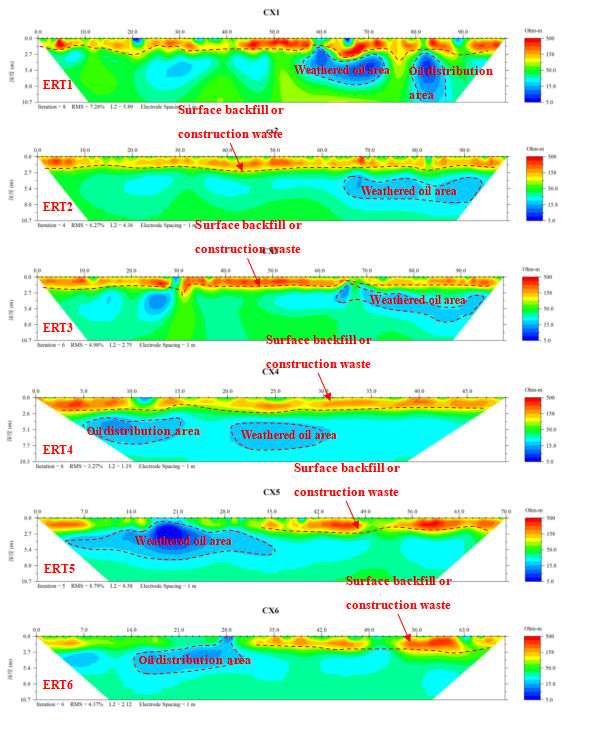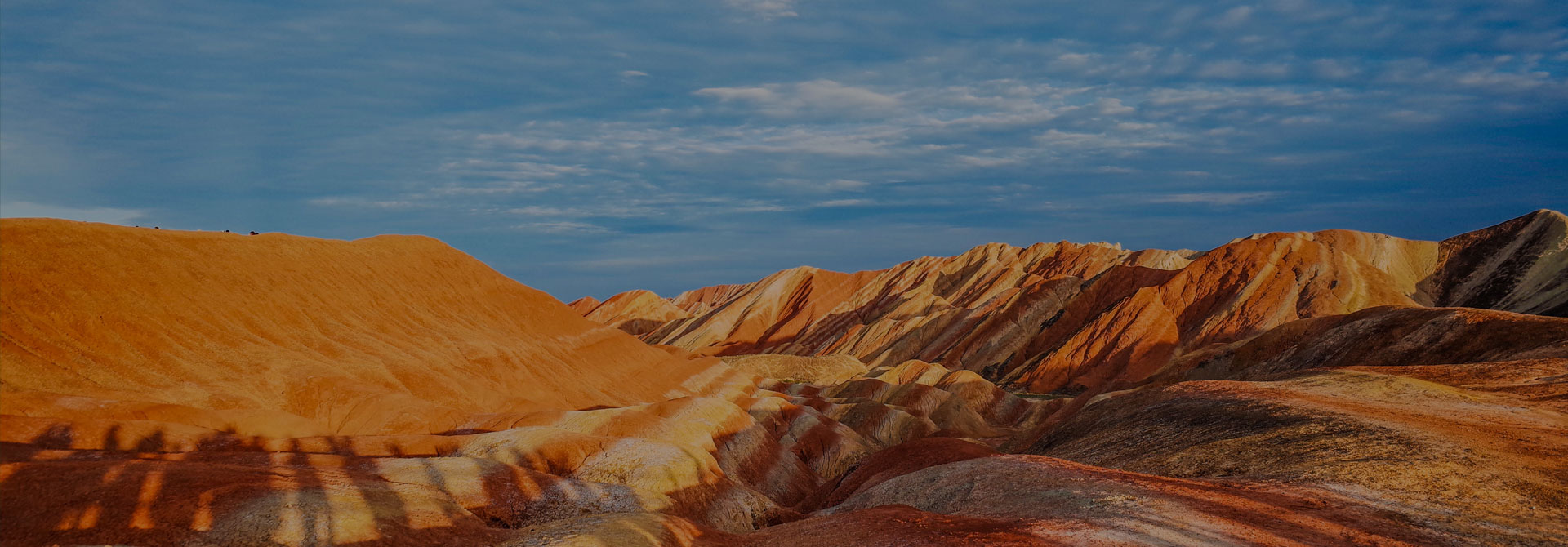
Detect the range of oil pollution distribution. The survey area is about 4000 m2.
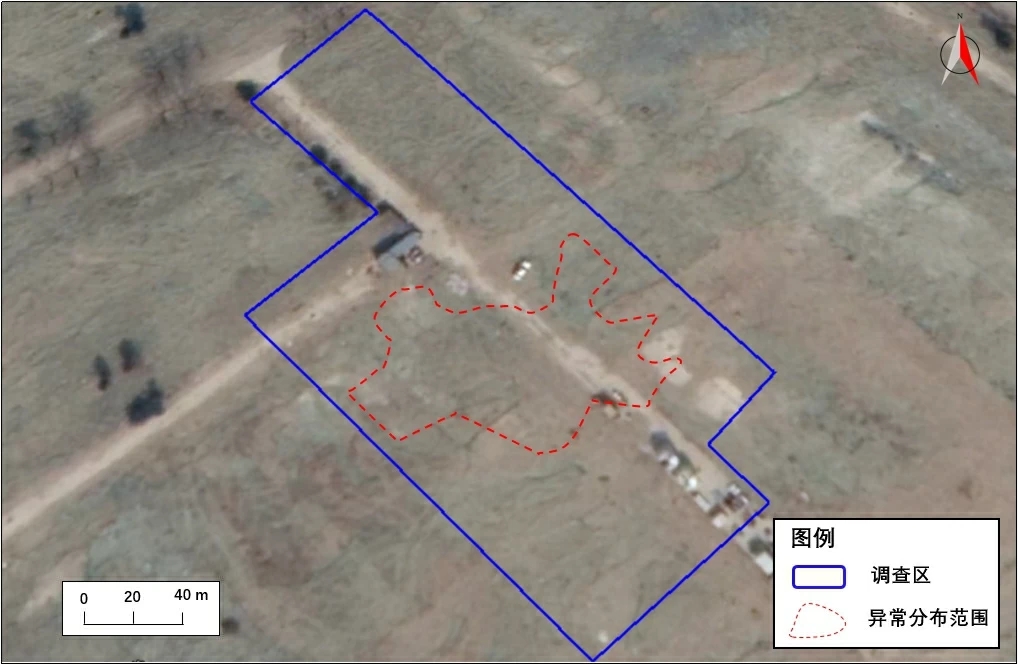
We adopted Wenner-Schlumberger Array for the ERT Survey. The Wenner array has better resolution for horizontal layered structures, and the Schlumberger array is relatively sensitive to vertical structure detection. Spacing between each electrode is 1m, and a total of 6 ERT lines are arranged in the survey area.

FIG 2-3 Layout of ERT survey line in survey area
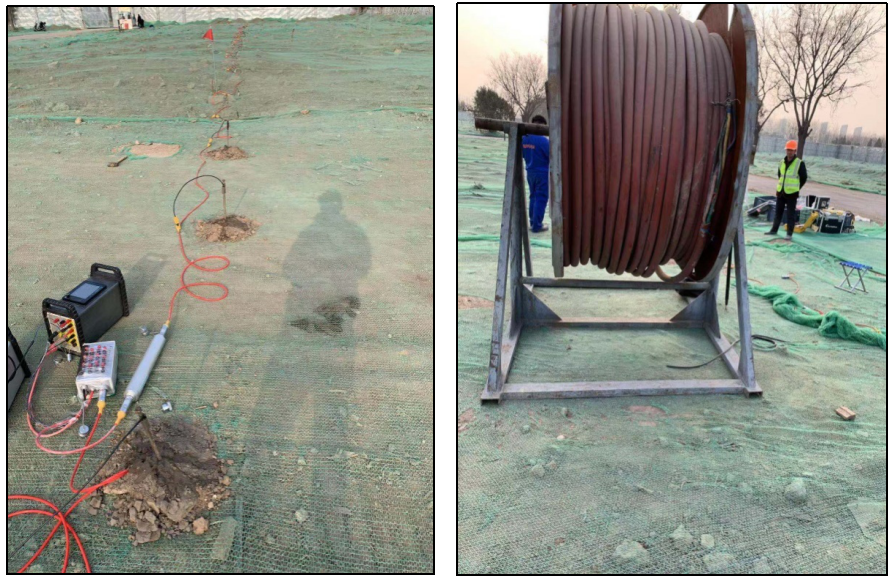
FIG 1-4 Field work photos
The background ERT results: the resistivity of the entire background is between 21~1000Ohm-m. The electrical resistivity in the longitudinal direction is a “high-low” changing electrical distribution. Therefore, based on the field data and the characteristics of the resistivity medium, it is speculated that the resistivity higher than 1000 ohm-m or lower than 20 ohm-m is an abnormal block.

FIG 3-1 ERT1 Background Resistivity
3.2Interpretation of 2D detection results
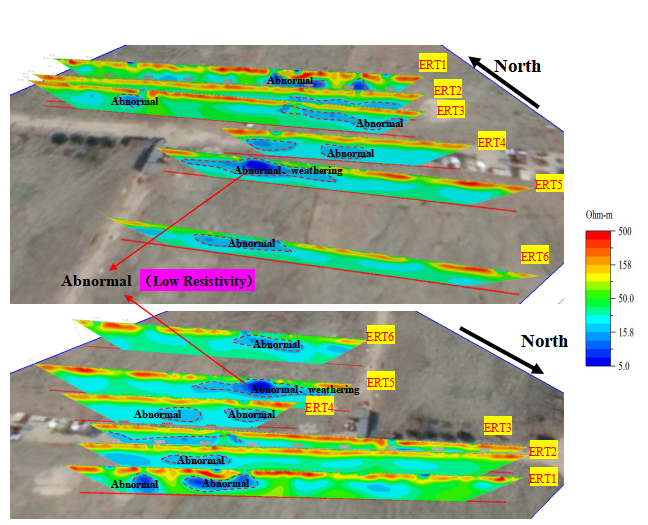
The overall line resistivity of the field can be roughly divided into two layers. The first layer is a continuous relatively high resistance layer with a depth of about 0-1.8 meters, and the resistivity range is between 120-500 Ohm-m which may be caused by surface backfill or construction waste.The second layer is below 1.8 meters in depth and the resistivity is less than 120 ohm-m, which is speculated to be an abnormal area. This abnormality is an area where pollution is easy to gather and may be weathered if oil products are contaminated. The average depth of the pollution anomaly is 3-7 meters, the shallowest position of the pollution is about 2 meters, the deepest position of the pollution exceeds the measured depth of the line by 10 meters, and the anomaly is not closed downward.
3.3Interpretation of 3D detection results
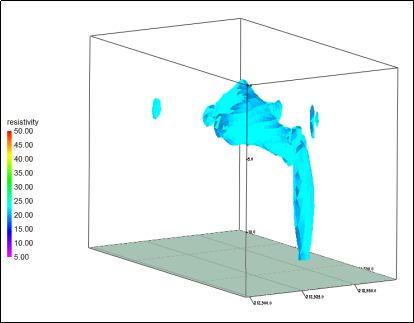
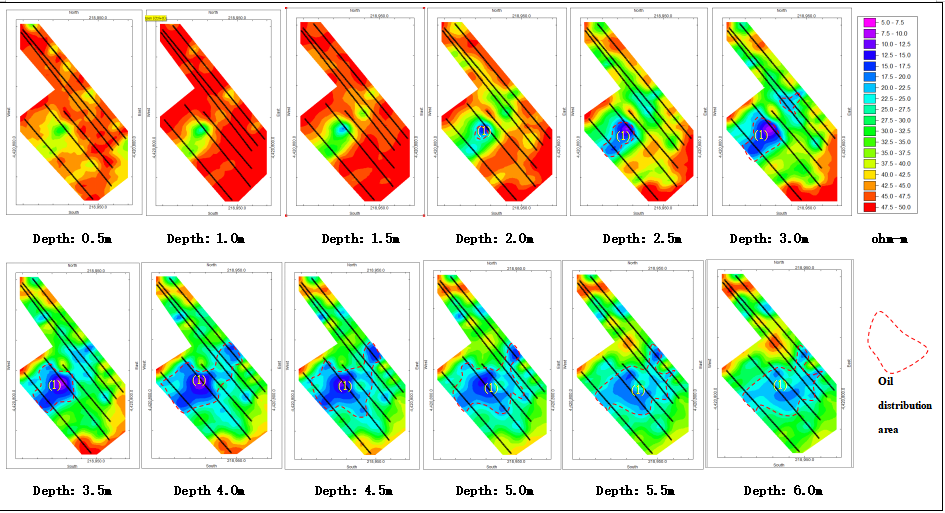
FIG 3-5(a)Section drawing
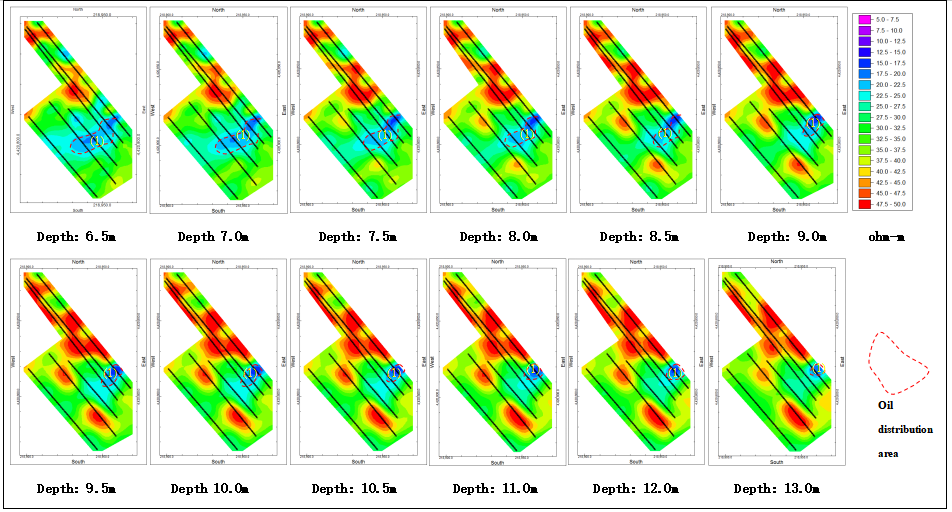
FIG 3-5(b)Section drawing
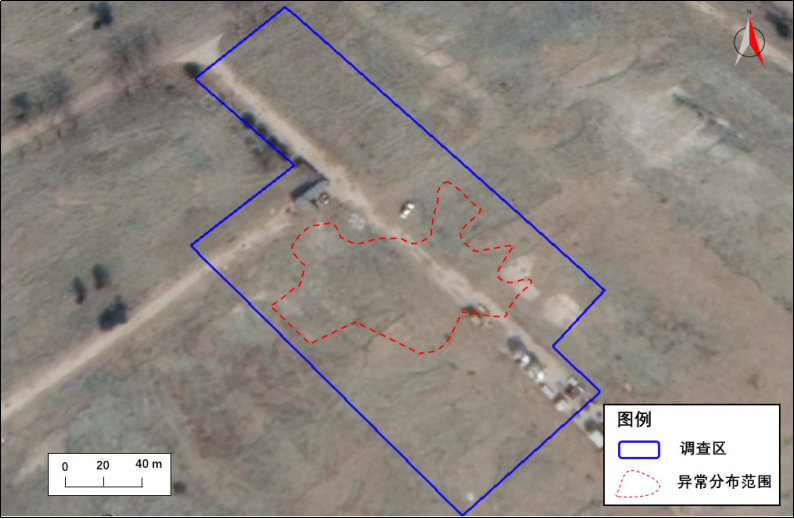
FIG 3-6 Oil distribution area
1. The average depth of the abnormal distribution of pollution in the investigation area is about 3-7 meters, the deepest is about 12 meters, the depth of the most serious pollution range is about 4-6 meters. Where the resistivity is relatively lowest area, it may be severely weathered oil.。
2. The distribution of pollution in the survey area is about 1287 m2.
Annex
